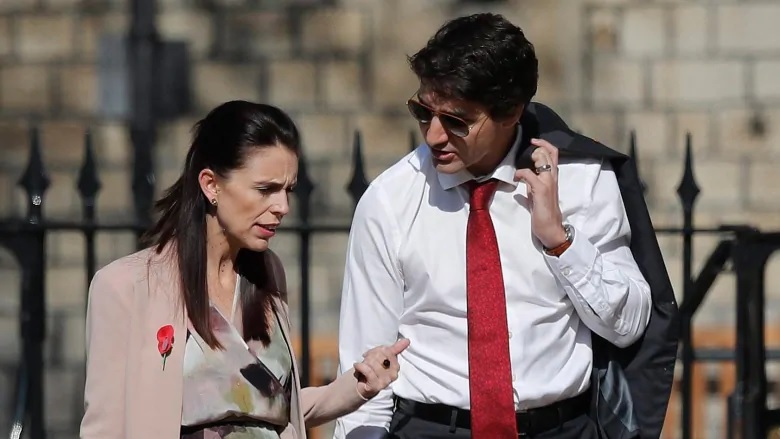
Prime Minister Justin Trudeau is in Paris to join other world leaders and tech executives at a meeting aimed at finding a way to eliminate acts of violent extremism from being shown online.
The meeting is being led by French President Emmanuel Macron and New Zealand Prime Minister Jacinda Ardern, whose behaviour following the terrorist attack in her country that took the lives of 51 persons at two mosques in March, won the admiration of millions around the world.
The so-called “Christchurch Appeal” is named after the city where the attacks took place and is being attended by leaders of Britain, France, Canada, Ireland, Senegal, Indonesia, Jordan and the European Union.

Prime Minister Trudeau, shown here in 2018 with Prime Minister Ardern, is attending the Christchurch Call meeting in Paris this week. The international meeting is aimed at getting governments and social media companies working together to curb the spread of violent and extremist content online. (Frank Augstein/AP Photo)
Notably absent is the United States, which was not invited and not expected to sign any pledge because it is reluctant to regulate the internet due to concerns about limiting free speech.
The effort began on something of a high note on Wednesday when Facebook announced it will tighten access to livestreaming to prevent the sharing of graphic video as took place with the Christchurch attacks.
Ardern welcomed announcement, continuing to stress that her desire to control hate online has nothing to do with limiting freedom of expression.
“That right does not include the freedom to broadcast mass murder,” she wrote in an op-ed column in the New York Times this past Saturday.
“This is not about undermining or limiting freedom of speech. It is about these companies and how they operate.”

Ardern is seen at a press conference, at the OECD headquarters in Paris yesterday. (Thibault Camus/AP Photo)
Twitter, Google, Microsoft and several other companies are attending the meeting, which Ardern calls a significant “starting point” for changes in government and tech industry policy.
For his part, Trudeau spoke Monday by phone with Microsoft’s president, Brad Smith.
According to the Prime Minister’s Office, the two discussed how governments could work with social media platforms to “stop the internet being used as a tool to organize and promote terrorism and violent extremism.
In a press release last week announcing the Paris trip, Trudeau voiced fears that social media platforms increasingly are being weaponized “as tools to incite, publish and broadcast extremist violence and hatred.”
He called for “a co-ordinated global response” to tackle the problem.


